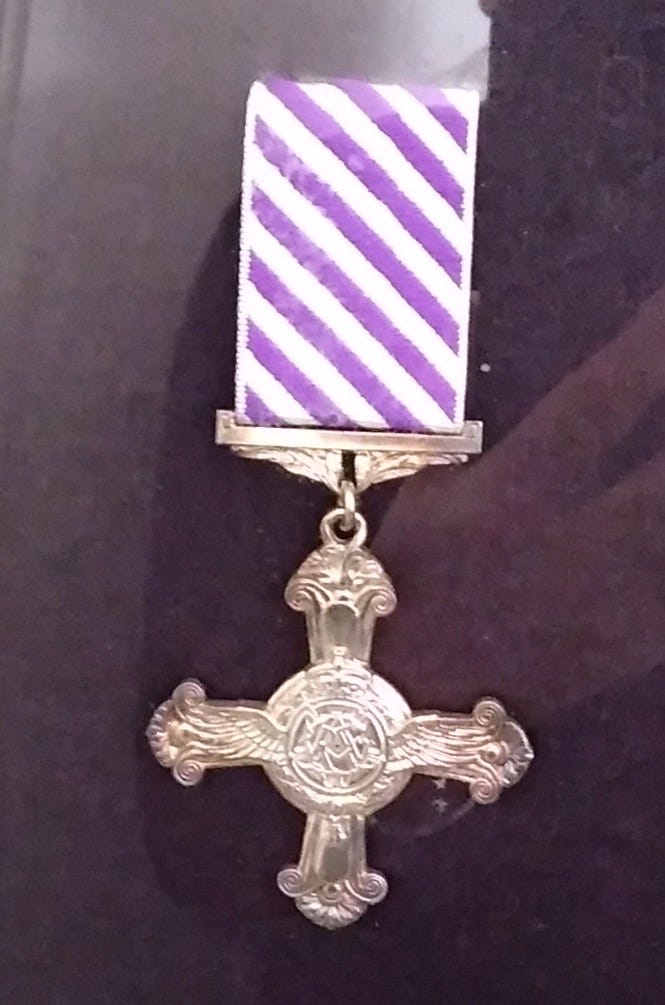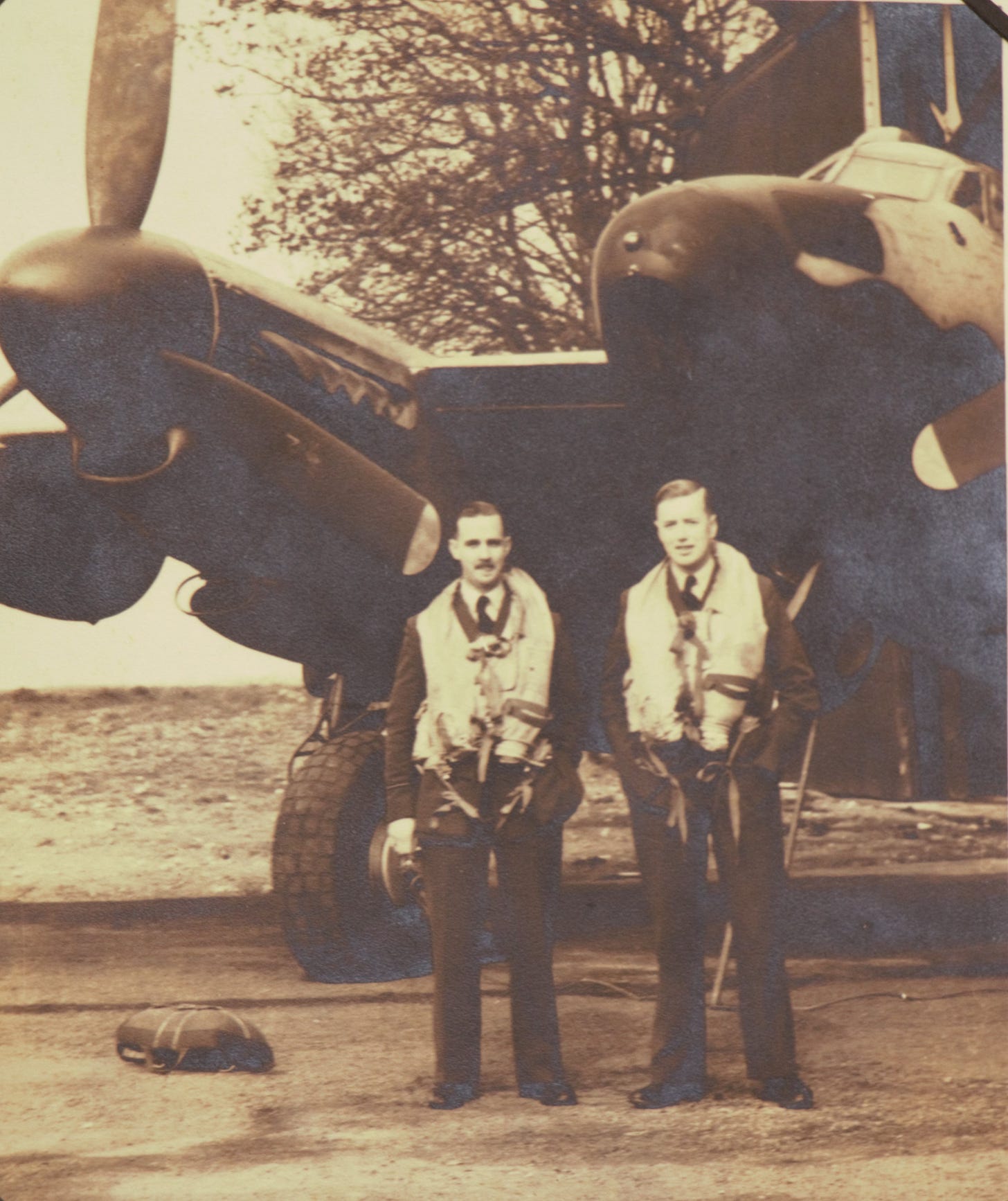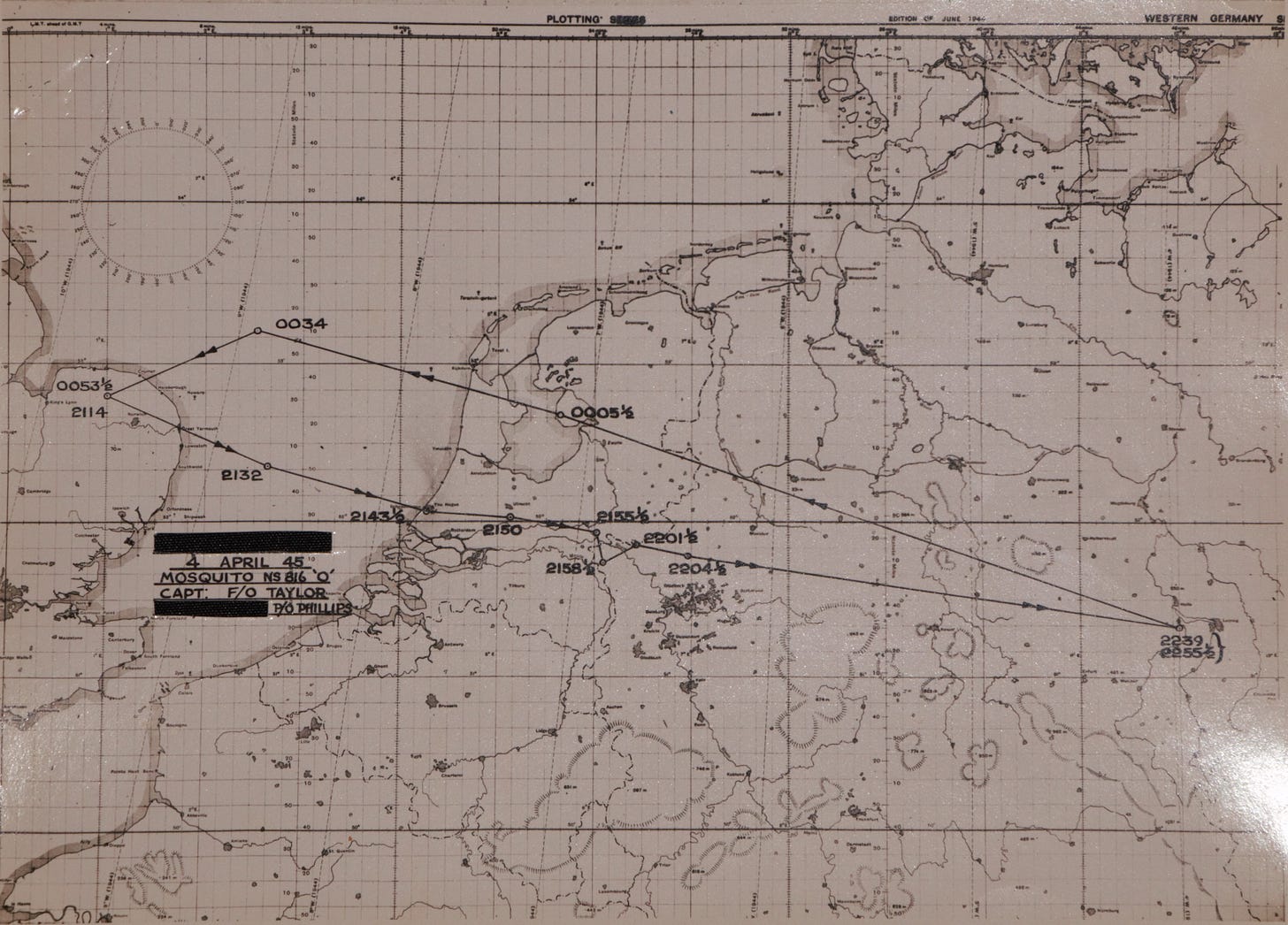Some years ago, soon after I had published The Jail Busters, my exploration of the story at the heart of the February 1944 raid on Amiens prison, my mother noted casually to me that ‘Teddy’ would have enjoyed the book. She has always been an avid reader, and a keen supporter of my work.
‘Who is Teddy?’ I asked.
‘Who was’ she replied.
After a bit of eye-rolling on my behalf she said, “Cousin Teddy of course, the one who was awarded a DFC for his work flying Mosquitoes over Germany in the war.”
I must have stood there with my mouth open. This was news to me.
“I’ve never heard of Cousin Teddy” I replied, somewhat startled. I’d spent a couple of years deeply embedded in all things Mosquito, and especially the three ‘Mossie’ squadrons, British, Australian and Kiwi that had participated in the raid. This was the first time I’d ever heard of Cousin Teddy.
She looked at me strangely. I, of course, was very aware of ‘that’ look. Those piercing blue eyes that looked through me, sharp as daggers; the steady, severe expression she adopts when she’s displeased.
It appears that she thought I knew all about her cousin, Flight Lieutenant Teddy Taylor DFC RNZAF but, as with so many assumptions in life, she was wrong. So here I was, having spent a significant amount of my life in and out (figuratively) of Mosquitos, meeting veteran flyers and navigators (including Max Sparks) and their families, in New Zealand and the U.K., only to find that, unbeknownst to me, I had one of these in my family. And he’d been awarded the DFC.
My own cousin Bryan Long was as excited as me to hear of this connection. As he was in New Zealand and I wasn’t, I suggested that he do the investigative work. A little while later, an article he prepared appeared in ‘Mossie Bites’, the magazine of The People’s Mosquito. If, by the way, you want to see a Mosquito fly again in British skies, please do follow these folk and support them if you can. I do.
Edward (Teddy) Taylor was born in Auckland on 26 June 1914, the youngest of 6 children. He joined the RNZAF in October 1941 and initially learned to fly in a De Havilland DH.82 Tiger Moth. By September 1942 he found himself at RAF Booker in Buckinghamshire, a few miles north of where I now live in a village on the outskirts of what used to be RAF White Waltham. He flew his first operational serial – a Halifax raid on Hamburg, as a stand-in pilot in JD371 – on 2 August. On 28 August JD371 was shot down over Belgium and 5 of the crew were killed.
Mosquitos followed, and by October 1944 he had joined 192 Squadron at RAF Foulsham in Norfolk. The squadron was part of 100 Group, the role of which was fascinating. It was to fly high above the nightly heavy bomber streams over Europe recording German radio transmissions, blocking radar and confusing enemy radar with the use of ‘window’ – small strips of tin foil. They even had German-speaking airmen able to put out false transmissions. Some of what 100 Group got up to is still hidden deep behind the 100-year rule, available not before 2045.
All in all he flew 13 types of Mossie in 43 sorties in 192 Squadron accruing 154.35 flying hours over Europe. One such type of operation Teddy flew uncovered by Bryan was the ‘Big Ben’ operations against German V2 rocket operations. The Allies believed the V2s were radio guided. As a countermeasure, Big Ben sorties carried radio signal interference equipment to divert rockets off course. It was not until 1976 that the crews discovered that the rockets were not radio guided at all.
On twelve sorties he also operated an airborne jamming transmitter called PIPERACK. The transmitter was carried by an aircraft producing a cone of jamming behind it, within which the following bomber stream could shelter. He was operating PIPERACK on the night of 23 March 1945 for the bomber force that bombed Wesel, an attack in preparation for Operation Plunder, Monty’s operation to cross the Rhine.
Ted lived to the age of 91, passing away in Auckland in 2005.
So, make sure you turn over your family histories carefully. It’s amazing what you might find there.
Thanks Mum.








Amazing and so
Important to (re)discover these family tales and recognise their service.
Superb article